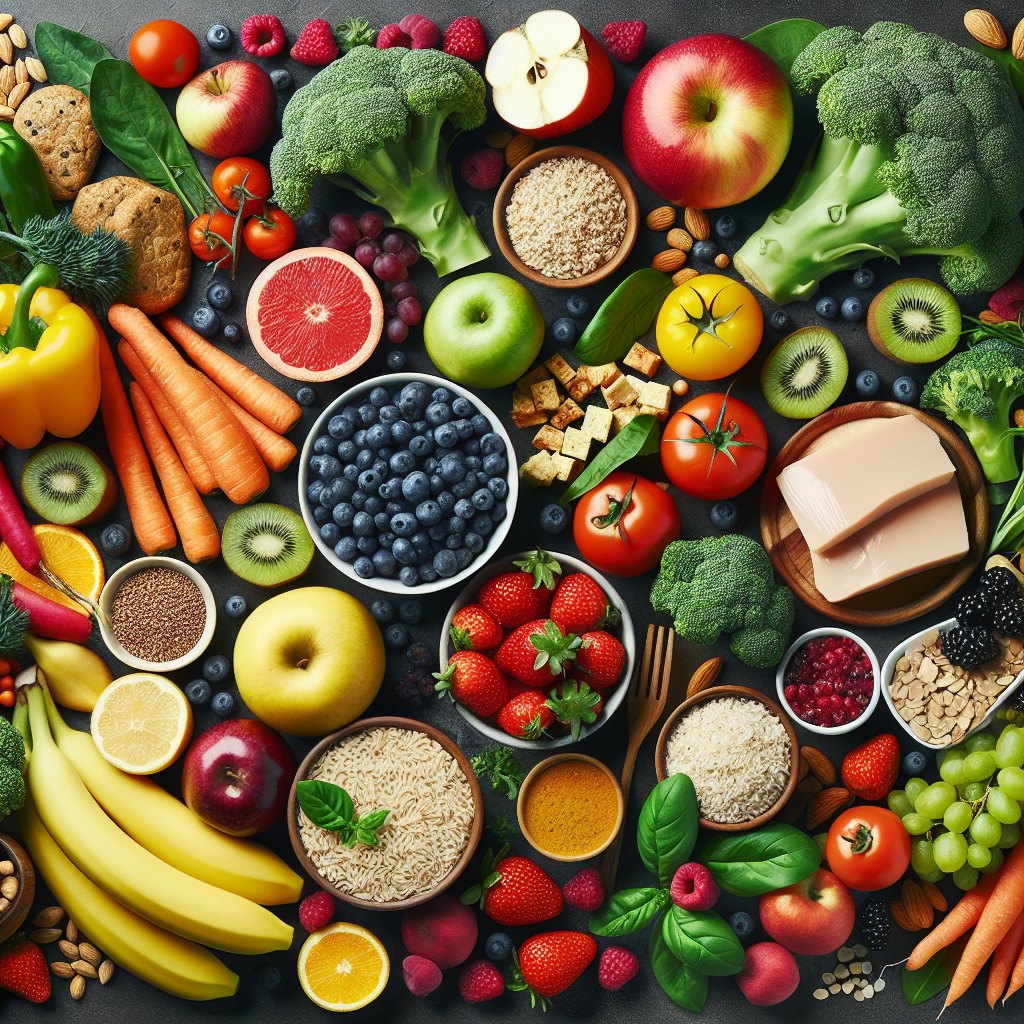– Understanding the Basics of Balanced Nutrition
Understanding the basics of balanced nutrition is crucial when creating a diet plan for optimal nutrition. A balanced diet includes a variety of nutrients that are essential for the body’s growth, repair, and maintenance. These nutrients include carbohydrates, protein, fat, vitamins, minerals, and water.
Carbohydrates are the body’s primary source of energy and should make up a significant portion of your daily calorie intake. Whole grains, fruits, and vegetables are excellent sources of complex carbohydrates that provide sustained energy levels.
Protein is essential for building and repairing tissues in the body. Sources of protein include meat, poultry, fish, eggs, dairy products, legumes, and nuts. It’s important to include a variety of protein sources in your diet to ensure you get all the essential amino acids.
Fats are also an important part of a balanced diet, but it’s essential to focus on healthy fats such as those found in avocados, nuts, seeds, and fish. These fats provide energy, support cell growth, protect organs, and help the body absorb certain nutrients.
Vitamins and minerals play a crucial role in maintaining overall health. Eating a variety of fruits and vegetables, as well as whole grains and lean proteins, can help ensure that you get a wide range of essential vitamins and minerals.
Finally, staying properly hydrated is a key aspect of balanced nutrition. Water supports all bodily functions, including digestion, absorption, circulation, and body temperature regulation. It’s important to drink an adequate amount of water throughout the day.
Understanding these basic principles of balanced nutrition is the first step in creating a well-rounded and healthy diet plan that provides the body with the nutrients it needs for optimal function.
– Tips for Designing Your Personalized Diet Plan
Designing a personalized diet plan is essential for achieving optimal nutrition and overall well-being. Here are some tips to help you create a balanced diet plan tailored to your individual needs:
- Assess Your Current Eating Habits: Before crafting your personalized diet plan, take a critical look at your current eating habits. Keep a food diary for a few days to identify patterns, such as excessive snacking or inadequate intake of essential nutrients.
- Set Realistic Goals: Whether you aim to lose weight, build muscle, or simply improve overall health, setting realistic and achievable goals is crucial. Consult with a registered dietitian or nutritionist to establish personalized targets.
- Include a Variety of Nutrient-Dense Foods: Ensure that your diet includes a diverse range of nutrient-dense foods such as fruits, vegetables, whole grains, lean proteins, and healthy fats. Aim to incorporate different colors and types of foods to maximize nutrient intake.
- Consider Any Dietary Restrictions or Allergies: If you have any dietary restrictions or food allergies, it’s essential to adapt your personalized diet plan accordingly. Seek alternative sources of nutrients to compensate for any limitations.
- Plan Your Meals in Advance: Creating a weekly meal plan can help you stay on track with your nutritional goals. Prepare a shopping list based on your planned meals to encourage healthier choices at the grocery store.
- Monitor and Adjust: Once you’ve implemented your personalized diet plan, monitor your progress and be willing to make adjustments as needed. Your nutritional needs may change over time, so staying flexible is key to long-term success.
By incorporating these tips into the design of your personalized diet plan, you can take significant strides towards achieving optimal nutrition and maintaining a balanced, healthy lifestyle.
– Incorporating the Essential Nutrients into Your Daily Meals
When creating a balanced diet plan for optimal nutrition, it is crucial to incorporate essential nutrients into your daily meals. These nutrients include carbohydrates, proteins, fats, vitamins, and minerals, all of which play vital roles in maintaining overall health and well-being.
Carbohydrates are the body’s primary source of energy and can be found in foods such as whole grains, fruits, and vegetables. It’s important to choose complex carbohydrates over simple sugars to provide a steady release of energy throughout the day.
Proteins are essential for the repair and growth of tissues, and they can be obtained from sources like lean meats, eggs, dairy products, and plant-based sources such as legumes and nuts.
Fats are important for brain function and hormone production. Opt for healthy unsaturated fats found in avocados, nuts, and olive oil while limiting saturated and trans fats found in processed and fried foods.
Vitamins and minerals, such as vitamin C, vitamin D, calcium, and iron, are necessary for various bodily functions. These can be sourced from a diverse range of fruits, vegetables, dairy products, and lean proteins.
By consciously including these essential nutrients in your daily meals, you can ensure that your body receives the proper nourishment it needs to function at its best.
